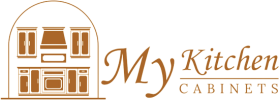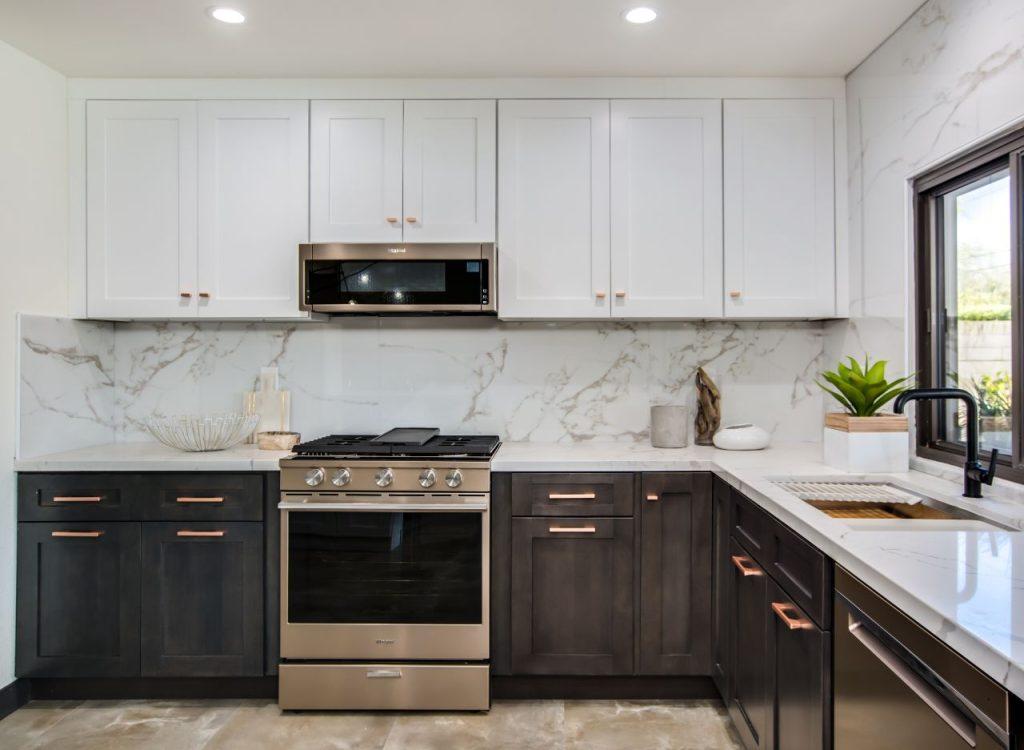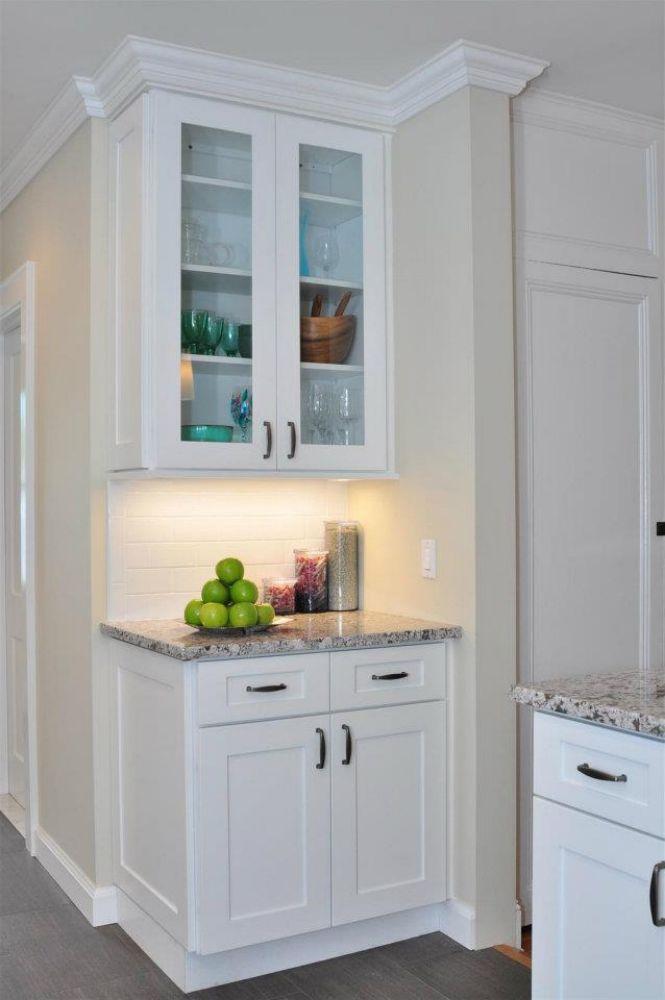The Ultimate Guide to Understanding the Resale Value of Custom Kitchen Cabinets
When it comes to home improvement projects, one of the most significant investments you can make is in custom kitchen cabinets. Not only do they enhance the aesthetic appeal of your kitchen, but they also play a crucial role in functionality and storage. However, homeowners often wonder about the resale value of custom kitchen cabinets. Will they add value to your home? What factors affect their resale value? In this comprehensive guide, we’ll address these questions and more, providing you with valuable insights into the world of custom kitchen cabinets and their impact on your home’s resale value.
Step 1: Generating Key Questions
Before diving into the details, let’s start by addressing some of the most frequently asked questions regarding the resale value of custom kitchen cabinets.
- Do Custom Kitchen Cabinets Increase the Resale Value of My Home?
- What Materials Are Best for Custom Kitchen Cabinets?
- How Do I Choose the Right Style for Custom Kitchen Cabinets?
- Are Custom Kitchen Cabinets Worth the Investment?
- Can I Recoup the Cost of Custom Kitchen Cabinets in a Home Sale?
- What Factors Affect the Resale Value of Custom Kitchen Cabinets?
- Should I Opt for High-End Custom Kitchen Cabinets?
- Are DIY Custom Kitchen Cabinets a Good Idea for Resale Value?
- How Can I Maximize the Resale Value of My Custom Kitchen Cabinets?
- What Is the Average ROI for Custom Kitchen Cabinets?
Now that we have our questions, let’s start with the first one.
Do Custom Kitchen Cabinets Increase the Resale Value of My Home?
Custom kitchen cabinets are often seen as a luxury addition to a home, and homeowners considering investing in them frequently wonder if they will see a return on that investment when it comes time to sell. The answer to this question is not a simple yes or no; it depends on various factors.
1. Kitchen’s Importance:
- The kitchen is a focal point in many homes, and its condition can significantly impact a potential buyer’s decision.
- Upgraded custom cabinets can make your kitchen stand out and potentially attract more buyers.
2. Quality Matters:
- The quality of your custom cabinets plays a vital role. Well-crafted cabinets made from durable materials tend to add more value.
- Buyers appreciate the convenience and aesthetics of high-quality custom cabinets.
3. Overall Home Value:
- Consider your home’s overall value. If your kitchen cabinets are incredibly high-end in a moderately priced home, you might not recoup the full cost.
- Custom cabinets should align with the overall value and style of your home.
4. Local Real Estate Market:
- The state of your local real estate market matters. In a seller’s market, buyers may be willing to pay more for a home with custom cabinets.
- In a buyer’s market, you may not see as much return on your investment.
5. Maintenance:
- Properly maintained custom cabinets hold their value better. Ensure they are in excellent condition when selling.
- Address any wear and tear or minor issues before listing your home.
6. Return on Investment (ROI):
- While custom cabinets may not provide a 100% ROI, they can still make your home more appealing to buyers.
- Focus on the overall improvement in your home’s resale value, not just the cabinets.
7. Appraisal Consideration:
- Remember that appraisers consider various factors when determining a home’s value, including kitchen upgrades.
- Document your cabinet investment and any other relevant home improvements.
In conclusion, custom kitchen cabinets can indeed increase the resale value of your home, but the extent of the increase depends on multiple factors. To maximize the return on your investment, it’s essential to choose quality materials, align the cabinets with your home’s overall value, and consider the local real estate market conditions. While you may not recoup the entire cost, the enhanced appeal of a well-designed kitchen can attract more buyers and potentially lead to a higher selling price.
What Materials Are Best for Custom Kitchen Cabinets?
Selecting the right materials for your custom kitchen cabinets is a critical decision that not only affects the overall aesthetics but also impacts their resale value. Here, we’ll explore the materials commonly used for custom cabinets and their implications.
1. Solid Wood Cabinets
Solid wood cabinets, typically made from hardwoods like oak, maple, cherry, or walnut, are a popular choice for custom kitchen cabinets. They offer several advantages:
- Durability: Solid wood cabinets are sturdy and can withstand daily wear and tear.
- Timeless Appeal: The natural beauty of wood adds timeless elegance to your kitchen.
- Customization: Wood can be stained or painted to match your preferred style.
However, solid wood cabinets can be expensive, and they may require periodic maintenance to prevent warping or cracking.
2. Plywood Cabinets
Plywood cabinets are constructed from layers of wood veneers glued together. They are known for their strength and stability:
- Sturdiness: Plywood is less prone to warping and cracking compared to solid wood.
- Affordability: Plywood is often more budget-friendly than solid wood.
- Versatility: It can be used for both the cabinet box and doors.
Plywood cabinets may lack the natural beauty of solid wood, but they can be an excellent choice for those seeking a balance between cost and quality.
3. MDF (Medium Density Fiberboard) Cabinets
MDF is an engineered wood product made from wood fibers, resin, and wax. It is often used for cabinet doors and panels:
- Smooth Finish: MDF provides a smooth, uniform surface for painting or veneering.
- Cost-Effective: It is generally more affordable than solid wood or plywood.
- Consistency: MDF is consistent in terms of density and quality.
However, MDF is susceptible to moisture damage, so it’s crucial to keep it away from water sources in the kitchen.
4. Particleboard Cabinets
Particleboard is another engineered wood product made from wood particles bonded with adhesive. It is an economical choice for cabinets:
- Affordability: Particleboard is the most budget-friendly option.
- Versatility: It can be used for cabinet boxes and shelves.
- Paintability: Like MDF, it provides a smooth surface for paint.
However, particleboard is less durable than other materials and is highly susceptible to moisture damage, which can lead to swelling and warping.
5. Laminate Cabinets
Laminate cabinets feature a surface layer of laminate, a synthetic material, over a core of particleboard or MDF:
- Variety of Styles: Laminate offers a wide range of colors and patterns.
- Low Maintenance: It is easy to clean and resistant to stains.
- Affordability: Laminate cabinets are often cost-effective.
While laminate cabinets are budget-friendly and low-maintenance, they may not have the same resale value as cabinets made from higher-end materials.
In conclusion, the choice of materials for your custom kitchen cabinets depends on your budget, style preferences, and long-term considerations. Solid wood cabinets offer timeless beauty but come at a higher cost, while plywood, MDF, and laminate provide more budget-friendly options with varying levels of durability and aesthetics. When selecting materials, it’s essential to strike a balance between your immediate needs and the potential impact on your home’s resale value.
How Do I Choose the Right Style for Custom Kitchen Cabinets?
Selecting the right style for your custom kitchen cabinets is a crucial step in creating a kitchen that suits your tastes and enhances your home’s overall aesthetic. Your choice of cabinet style can significantly impact the resale value of your home. Here, we’ll explore the various cabinet styles and provide guidance on making the right selection.
1. Traditional Style Cabinets
Traditional kitchen cabinets are characterized by their timeless and classic design elements:
- Raised Panel Doors: These cabinets often feature raised panel doors with intricate detailing.
- Ornate Hardware: Traditional cabinets typically use decorative knobs and handles.
- Rich Wood Finishes: Darker wood finishes like cherry or mahogany are common.
Traditional cabinets can add a sense of elegance and warmth to your kitchen. They are well-suited for homes with a more classic or formal interior design.
2. Modern Style Cabinets
Modern kitchen cabinets embrace clean lines, simplicity, and a minimalist aesthetic:
- Flat Panel Doors: Modern cabinets often feature flat or slab-style doors.
- Sleek Hardware: Minimalistic hardware, such as long, slim handles or no visible hardware at all.
- Neutral Colors: White, black, and various shades of gray are popular choices.
Modern cabinets create a sleek and uncluttered look, making them suitable for contemporary and urban homes. Their clean design can appeal to a broad range of buyers.
3. Shaker Style Cabinets
Shaker-style cabinets are known for their simplicity and functionality:
- Five-Piece Doors: Shaker cabinets typically have a five-piece door with a recessed center panel.
- Minimal Hardware: They often feature simple, unobtrusive hardware.
- Neutral Colors: Shaker cabinets are frequently painted in neutral colors like white, cream, or gray.
Shaker-style cabinets offer a versatile look that can complement various interior styles, from traditional to modern. Their timeless design can contribute positively to your home’s resale value.
4. Transitional Style Cabinets
Transitional kitchen cabinets strike a balance between traditional and modern styles:
- Combination of Features: They may have elements of both raised panel and flat panel doors.
- Mixed Finishes: Combining wood and painted finishes is common.
- Versatile Hardware: Transitional cabinets allow for a range of hardware choices.
Transitional cabinets offer flexibility and broad appeal. They can adapt to different interior design preferences, making them a versatile choice for homeowners concerned about resale value.
5. Contemporary Style Cabinets
Contemporary kitchen cabinets embrace the latest trends and innovations:
- Unique Materials: They may incorporate unconventional materials like glass, metal, or concrete.
- Handleless Design: Some contemporary cabinets eliminate visible hardware for a seamless look.
- Bold Colors: Contemporary cabinets may feature bold color choices.
Contemporary cabinets are ideal for homeowners who want to make a statement with their kitchen. However, they may not appeal to everyone, so consider your home’s target market when choosing this style.
In conclusion, selecting the right cabinet style for your custom kitchen is a balance between personal preference and market considerations. Traditional, modern, shaker, transitional, and contemporary styles each have their unique appeal and can impact the resale value differently. To maximize the value of your custom cabinets, it’s essential to choose a style that complements your home’s overall design while appealing to a broad range of potential buyers.
Are Custom Kitchen Cabinets Worth the Investment?
Investing in custom kitchen cabinets is a significant decision, both in terms of budget and the impact it can have on your home. Many homeowners wonder whether the investment in custom cabinets is truly worth it. Let’s delve into this question and explore the factors that can help you make an informed decision.
1. Personalization and Functionality
One of the most compelling reasons to choose custom kitchen cabinets is the ability to tailor them to your specific needs:
- Customization: You can design cabinets that fit your kitchen’s layout, storage requirements, and aesthetic preferences perfectly.
- Optimized Space: Custom cabinets make the most of every inch of available space, maximizing storage efficiency.
- Unique Features: You can incorporate special features like pull-out shelves, lazy Susans, or built-in organizers.
If you value personalized, functional cabinets that cater to your unique needs, custom cabinets are certainly worth considering.
2. Quality and Durability
Custom kitchen cabinets are typically constructed with high-quality materials and craftsmanship:
- Premium Materials: You have control over the materials used, ensuring durability and longevity.
- Expert Craftsmanship: Skilled artisans build custom cabinets to the highest standards, ensuring they last for years.
- Resale Value: The quality of custom cabinets can positively impact your home’s resale value.
Investing in quality cabinets can be a wise choice for homeowners looking for long-term durability and value.
3. Aesthetics and Home Value
The appearance of your kitchen cabinets can significantly affect your home’s overall appeal and value:
- Aesthetic Appeal: Custom cabinets can be designed to match your home’s style and enhance its visual appeal.
- Curb Appeal: A well-designed kitchen can be a selling point that attracts potential buyers.
- Return on Investment: While not guaranteed, custom cabinets can contribute to a higher resale value.
If you consider your kitchen a focal point and want to maximize its aesthetic appeal and marketability, custom cabinets may be a worthwhile investment.
4. Budget Considerations
Custom kitchen cabinets tend to be more expensive than pre-made or semi-custom options:
- Budget Flexibility: Custom cabinets allow you to set a budget that aligns with your financial constraints.
- Value vs. Cost: Consider the long-term value and satisfaction custom cabinets can provide in relation to their cost.
- Alternative Options: Semi-custom or stock cabinets may offer a balance between customization and affordability.
It’s essential to evaluate your budget and weigh the potential benefits of custom cabinets against their cost.
5. Resale Market Factors
The resale value of custom kitchen cabinets can be influenced by various market factors:
- Local Real Estate Market: The state of your local housing market can affect how much value custom cabinets add to your home.
- Comparable Homes: Consider what other homes in your area offer in terms of kitchen upgrades and cabinet quality.
- Buyer Preferences: Be aware of what potential buyers in your market are looking for in a kitchen.
To determine if custom cabinets are worth the investment, it’s essential to conduct market research and consult with real estate professionals.
In conclusion, the worthiness of investing in custom kitchen cabinets depends on your priorities, budget, and long-term goals. If you prioritize personalization, quality, aesthetics, and potential resale value, custom cabinets can be an excellent investment. However, it’s crucial to carefully consider your unique circumstances and market conditions to make an informed decision that aligns with your goals and budget.
Can I Recoup the Cost of Custom Kitchen Cabinets in a Home Sale?
Recouping the cost of custom kitchen cabinets when selling your home is a valid concern for many homeowners. The answer to this question depends on several factors, and it’s essential to evaluate them carefully before making an investment decision.
1. Real Estate Market Conditions
The state of your local real estate market plays a significant role in determining whether you can recoup the cost of custom kitchen cabinets:
- Seller’s Market: In a seller’s market, where demand outweighs supply, buyers may be willing to pay a premium for homes with upgraded features like custom cabinets.
- Buyer’s Market: In a buyer’s market, where there are more homes for sale than buyers, recouping the full cost of custom cabinets may be challenging.
Understanding the current market conditions in your area is crucial in assessing the potential return on investment.
2. Home’s Overall Value
Consider your home’s overall value in relation to the cost of custom kitchen cabinets:
- Proportionality: Custom cabinets should align with the overall value of your home. Installing high-end cabinets in a moderately priced home may not yield a full return.
- Competitive Advantage: Upgraded cabinets can give your home a competitive edge over comparable properties in the same price range.
It’s important to strike a balance between the investment in cabinets and the perceived value they add to your home.
3. Quality and Aesthetics
The quality and aesthetics of your custom kitchen cabinets can impact their resale potential:
- High-Quality Materials: Cabinets made from premium materials and craftsmanship tend to retain their value better.
- Aesthetic Appeal: Cabinets that enhance the overall look and functionality of the kitchen are more likely to attract buyers.
Investing in cabinets that combine durability and aesthetic appeal can increase the likelihood of recouping costs.
4. Appraisal Consideration
When your home is appraised for its value, the appraiser will take various factors into account, including kitchen upgrades:
- Documentation: Keep records of your cabinet investment and any other home improvements.
- Comparables: Appraisers often compare your home to others in the area to determine its value. Be aware of what similar homes offer in terms of kitchen upgrades.
While an appraisal doesn’t guarantee a specific return on investment, it can provide valuable information about your home’s value.
5. Marketability
Well-designed and well-maintained custom kitchen cabinets can enhance the marketability of your home:
- Attracting Buyers: An updated kitchen with custom cabinets can attract more potential buyers.
- Faster Sale: Homes with desirable features tend to sell faster, potentially reducing holding costs.
While you may not recoup the entire cost of custom cabinets, they can contribute to a smoother and more profitable sale.
In conclusion, whether you can recoup the cost of custom kitchen cabinets in a home sale depends on various factors, including market conditions, the quality and aesthetics of the cabinets, and their contribution to your home’s overall value and marketability. While full recoupment may not always be guaranteed, investing in well-designed, high-quality custom cabinets can improve your chances of attracting buyers and achieving a favorable sale price. It’s advisable to consult with real estate professionals and conduct a cost-benefit analysis before proceeding with the investment.
Read: Long-Term Benefits of Stock Kitchen Cabinets
Read: Making the Right Choice: Stock vs. Custom Kitchen Cabinets



